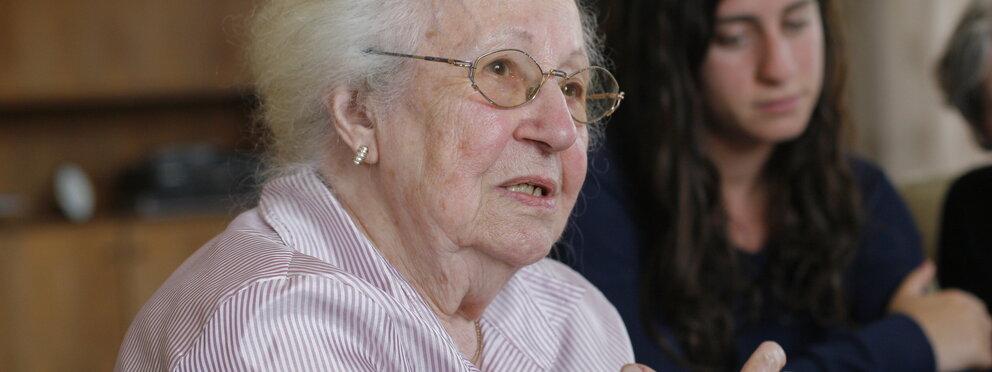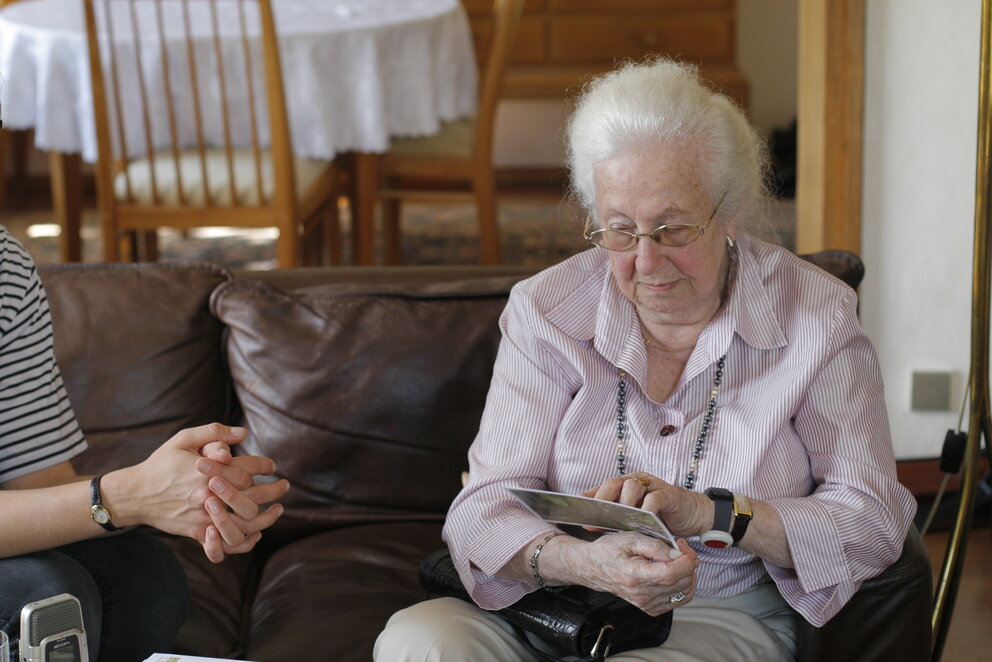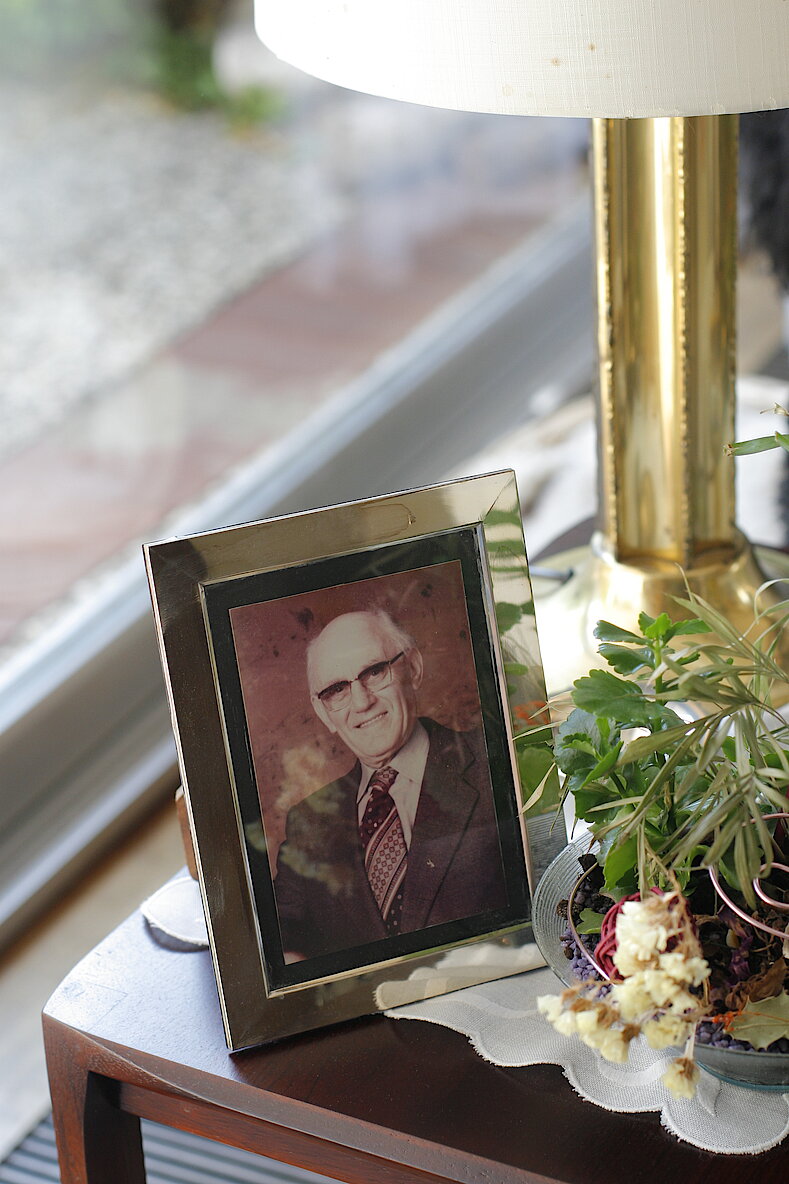
Erna de Vries
About Erna de Vries
Erna de Vries was born on 21 October 1923 in Kaiserslautern. She was the only child of Jacob Korn and his wife Jeanette and had a happy and beautiful childhood. However, at the young age of 16, she was deported to Auschwitz together with her mother. She miraculously survived the horrors of the concentration camp. Throughout her life, Erna de Vries visited schools to tell her story to young Germans. It was her mother's mission that she pursued: "You will survive, and then you will tell what they did to us."
»Silence doesn't bring people closer together. I think you should try to approach each other and if you look at a person and they're German or coloured or whatever and they're a decent and good person. What can I have against that?«

A picture to live on
When asked what helped Erna the most to rebuild her life, she told us: "What helped me the most was my husband and the hope that things would work out for us. My husband had even more courage to face life than I did.

Unsere Begegnung
Stocked up on fresh Nussecken biscuits, we entered a well-kept family home of a brave woman who had made a conscious decision to stay in Germany after her horrific experiences in several German concentration camps.
Spontaneously, our meeting had become larger than we had initially planned. Not only had we brought two guests with us, Erna also had her daughter and a granddaughter from Israel visiting. So we sat around a large table with three generations, asking questions, listening and discussing between cultures and generations.
Erna herself welcomed us with open arms, so we were not afraid to ask all the questions that interested us. In fact, she told us, she was hardly ever asked about her past by those around her. Which is a shame, because she no longer has the strength to approach strangers. She particularly enjoyed visiting schools in response to invitations and had almost never turned down a request, except once when she was really ill.
From our encounter, we know only too well that it takes a lot of effort to ask a survivor personal questions about her past. But even more impressively, we learnt that if you dare to overcome this barrier, a very special encounter can arise.
